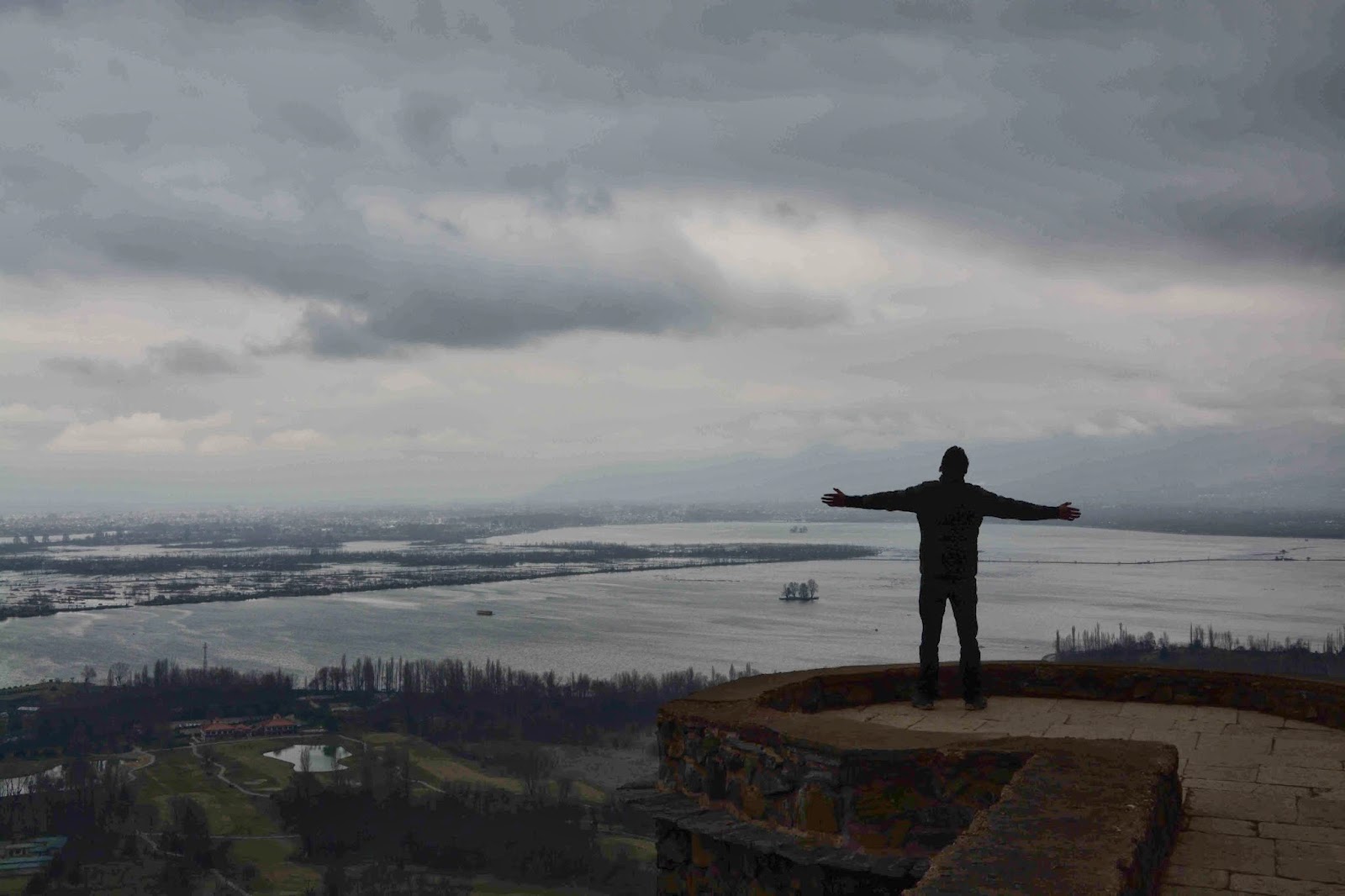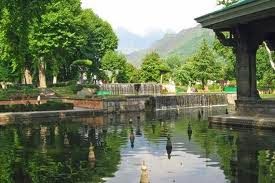Srinagar the most beautiful tourist destination in India
Srinagar the summer capital of J&K, which happens to be one
of the most beautiful tourist destinations of India, Srinagar city captivates
more than 10 lakh tourists every year, Be it the Mugal Gardens, Dal Lake, Pari
Mahal, Modern parks like Nehru park, Iqbal Park, Zabarvan Park, Tulip Garden,
Botanical garden. In addition religious tourism is also an attraction for many
like Dargha and Shankar Achariya. For Accommodation of such a huge number of
tourists there are more than a 1000 hotels and more than 5000 house boats.
Boulevard road of Srinagar where most of the luxurious hotels
are standing tall with their beautiful lush green lawns facing the Dal Lake,
and this road connects to foreshore road which happens to be a road to heaven.
Mughal Gardens
These are a group of gardens which
were built by Mugals in Persian style of architecture. Significant
use of rectilinear layouts is made within the walled enclosures. Some
of the typical features include pools, fountains and
canals inside the gardens.
Shalimar bagh:
was built by Mughal emperor Jahangir for his wife Nur Jahan,
in 1619, situated at the bank of Dal Lake. This garden is terraced with
rectangular lawns, in the middle of the garden there lies a line of cascading
fountains which are placed inside a axial
water channel, which are pumping water high up in the air, the sides of water
channel is laced with beautiful flower beds where you find the exotic flowers
of every kind. In front of the park there lies panoramic view of Grand Dal Lake
and in the back drop a view of Zabarvan mountains which adds to the aesthetics
of garden. This garden is the largest Mughal Garden in Srinagar.
 |
| nishat garden in winter |
Nishat Garden:
Meaning
Garden of joy, garden of gladness and garden of Delight, this garden was built
by Asif Khan brother of Nur Jahan, in year 1633, it is almost similar to
Shalimar bhag in construction and layout, however 12 terraces are decorated
with magnificent Chinar/Maple and Cyprus trees. This garden is also located on
the bank of Dal Lake is at a distance of 11 kilometers 6.8 miles from the Lal
chowk and at a distance of 25 Km from Airport
 |
| chashma shahi srinagar |
Chashma Shahi:
“Chashma” meaning Spring, a well where
from water oozes out naturally and “Shahi” meaning Royal, so it is a Royal
Spring built by Ali Mardan in 1632 AD. It is
built around a fresh water spring, discovered by Rupa Bhawani, which flows
through its centre in terraces. The topography and the steepness of the land
has led the formation of the garden. The main focus of the garden is the spring
which flows down in terraces and is divided into three sections: an aqueduct,
waterfall, and fountains. A two-storey Kashmiri hut stands at the first terrace
which is the origin of the spring.
 |
| pari mahal and a view of Dal |
Pari Mahal:
The Fairies'
Abode, this Mahal was built
by prince Dara shikon, son of Mughal Emperor Shah Jahan on the ruins of
Buddhist Monastery, for his tutor. It was used as observatory for teaching
Astrology and Astronomy, its architecture depicts and symbolizes the influence
of Sufi islam. This comprises of seven terraced garden located at the top of Zabarwan
mountain range over-looking
city of Srinagar and south-west of Dal Lake and a direct eye
contact with the mazar of Hazrat-e-sultan.
It is five-minute drive from Cheshmashahi, Srinagar.
Modern
gardens of Srinagar
 |
| tulip garden srinagar |
Tulip
garden:
Asia’s largest tulip
garden also known by the name of Indira Gandhi Memorial Tulip garden, earlier
it was named by the name of Model Floriculture center Srinagar; it is spread
over an area of sprawling 12 hectors or 20 Ac res it is situated on the bank of
famous Dal Lake and on the foot hills of Zabarvan mountains,
Two
million tulips adorn of 60 different variety, beautify and captivate the mind
and soul of visitors, tulip festival starts in the first week of April and
lasts for 2 more weeks.
 |
| botanical garden srinagar |
Botanical
Garden:
This garden is built in 1969 spreading over an area of not
less than 80 hectares located on the bank of Dal Lake and on the foot hills of
Zabarvan Mountains is a
well-tended area displaying a wide range of plants labelled with their botanical names. It contain specialist plant collections such as flowers and succulent plants, herb gardens, medicinal plants from particular parts of the world.
This definitely happens to be lovers park couple from every part of the valley
comes to visit this park and enjoy under the shade of maple and cypress trees.
Zabarvan
Park:
AeroBalloon is a technology that attracts families for
enjoyement and fun as the balloon can carry five persons at a time. Zabarvan
Park offers a chosen and favorable location for the static ballooning because
favorable wind condition is helpful for balooning. Shankracharya hill blocks
the wind which is at the back drop of zabarvan park, there are less chances of
fast blowing cross winds that could disturb its smooth operation. Delightfully
a rider can view a clear aerial view of the entire Dal Lake. It reaches almost
half of the height of Shankracharya, thus allows one to have splendid view of
dense forests of the hillock as well rider can catch the look of entire view of
Srinagar, On a clear morning one could have scintillating view of lofty
mountain chains lying in the distant horizon, including Mount Mahadev and Mount
Harmukh etc. a fee of 500 Rs is charged on adult and 300 Rs for child.
Iqbal
Park:
Dr. Sir Mohammad Iqbal
Park, this park is located in the heart of Srinagar near Bakshi Stadium on the
Air Port road. This park mostly attracts local tourists.
Nehru
Park:
is
located inside Dal Lake near Boulevard
Rd, Karapura, Rainawari, Srinagar.
Dal
Lake:
Dal Lake is a home to a
number of House Boat hotels, lakhs of tourists visit Srinagar in summers to
stay in house boats. House boat stay happens to be one of the most delights
moments because a view of scintillating and lofty blue Zabarvan Mountains on
one side and Shankarachariya hillock on the other side, clear water underneath the
house boat and a breeze of fresh and cool air adds to the heavenly experience.
Shikara in Dal Lake
Shikara ride from
Dargha to Charchinari (four Maple trees; island in the middle of Dal) or a ride
from Boulevard road to Kabootarkhana adds to the experience.
Water Boat ride
Water boat ride has started
in the recent times and it comes in adventure tourism.
Fishing
you can do fishing in
Dal, if you are love in it.
Nagin Lake
is a small lake in Srinagar;
it is also a home to many house boats.
Places
for religious tourism in Srinagar city
Jamia
Masjid Srinagar
The
Jamia Masjid of Srinagar is situated at Nowhatta, in the middle of the old city. An important
mosque in Srinagar, it was built by Sultan Sikandar in 1400 AD.[1] Later, the son of Sultan Sikandar,
Zain-ul-Abidin got the mosque extended. The attractions of the Jamia Masjid of
Srinagar, Kashmir include beautiful Indo-Saracenic architecture, a magnificent courtyard and 370 wooden pillars.
Another feature of the mosque is the peace and tranquility inside it.
Dargha:
 |
| dargha hazratbal srinagar |
The HazratbalShrine a Muslim shrine in Srinagar, J& K. It contains a relic, the Moi-e-Muqqadas,
believed by many Muslims of Kashmir to be a hair of the Islamic prophet MuhammadPBUH. The name of
the shrine comes from the Arabic word Hazrat, meaning holy or majestic, and the Kashmiri word bal, meaning hair.
The shrine is
situated on the left bank of the Dal
Lake, Srinagar and is considered to be Kashmir's holiest Muslim shrine.
Hazrat-e-sultan or Makdoom Sahib
Hamza Makhdum (1494–1563),
also called Mehboob-Ul-Alam, and Sultan-Ul-Arifeen, and popularly known as
"Makdoom Sahib", was a sage born to Baba Usman,
of the syed dynasty family hailing from Tujar Shareef in Kashmir). He was a
hereditary landlord, a
scholar and a mystic SufiMuslim saint
of high order
Shankar
Achariya
The Shankaracharya Temple (Kashmiri: शंकराचार्य मंदिर, شنکراچاریہ مندر ,
also known as the Jyesteshwara temple orPas-Pahar by
Buddhists, is situated in the Zabarwan
Mountain in Srinagar, Kashmir. It is dedicated to
Lord Shiva. The temple is
on the summit of the same name at a height of 1,000 feet (300 m) above the
plain and overlooks the city of Srinagar.
Educational
tourism
| University of Kashmir |
 |
| iqbal library srinagar |
Iqbal Library
National institute of technology Hazratbal
You can call
Srinagar a city of Lakes, a city of gardens, a city of flowers, a city of
Lotuses, a city of tulips, a city of mountains, a city of wazwan, a city of
fresh water, a city of pashmina, a city of fresh air but above all it is a city
of aesthetics.





.jpg)



